
When my senior year was cut short with the arrival of the COVID-19 pandemic, so was my time as an undergraduate fellow at RPLC. While most facets of my Rice experience – being part of a residential college, playing IM sports, attending my Sociology and Policy Studies classes – haven’t been able to continue past (virtual) graduation, my work at RPLC has followed me into alumni life. I’m very lucky to have been able stay on at RPLC as a post-baccalaureate researcher.
A global pandemic is a very, very interesting time to be a sociologist, so I’ve really relished the opportunity to be a part of such a robust social science research enterprise during this time. The skills and perspectives that I’ve been able to gain through my work at RPLC are helpful when thinking about this crisis on a macro level. Being able to contribute to RPLC’s ongoing COVID-related research helps me to feel that I have a role, however small, in both documenting this historic moment and making things better for the future. Instead of being swallowed by the overwhelming nature of the pandemic, I get to be an active part of studying and learning from it.
I’m also searching for a full-time job in the policy/advocacy/nonprofit realm, and, as anyone who’s ever embarked on a job search knows, the process really makes you tally all your skills and experiences. As I’m writing cover letters and sitting for interviews, it’s impossible for me to ignore the fact that my experiences at RPLC are infinitely applicable to my field. RPLC has given me nearly two years of research experience, opportunities to hone my writing and editing skills, and an up-close example of stellar community outreach and public engagement. I’m applying to a broad range of positions, and it’s struck me over and over again that, no matter the role, I have an experience from RPLC that makes me confident that I have something to add to that organization.
— ROSE KANTORCZYK
Rice University '20
RPLC undergraduate student fellow, 2019-2020
RPLC post-baccalaureate fellow, 2020-2021
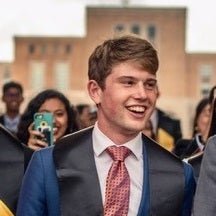
When I tell people about my work with the Religion and Public Life Center, they almost always say something along the lines of, “wow, that sounds like a great job.” And they are right. I am convinced that the decision to work for RPLC was one of the best I have made in my life. The skills I have learned, the people I have met, the stability I have been given, and the mentorship I have received all have made for a truly life-altering experience, one that has helped clarify my passions, calling, and goals.
I came to RPLC in the Fall of 2018 as a proofreader for a PhD student, and I was hired as an undergraduate fellow in the Spring of 2019. My first impression of my work at RPLC was the work: it was interesting, intellectually stimulating, and felt far too important for an undergraduate. From week one working for RPLC, I was entrusted with real data, got to collect real information for ongoing projects, and was asked to take part in real conversations about current projects. Soon afterwards, I began to help write, edit, and research a new book from Dr. Elaine Howard Ecklund, director of RPLC. To say that the opportunity to work with an endowed professor on a book as an undergraduate is unheard of would be an understatement. I found the work meaningful, exciting, and interesting, and I still do. I transitioned to post-baccalaureate fellow in the Summer of 2020 following my graduation from Rice. I work more hours now, and my work is more research-intensive than it once was. The book I am editing now is more academic and requires greater work with extant literature. I now get to perform actual research for RPLC by studying congregations throughout the city of Houston to understand how different religious organizations are responding to COVID-19 and the racial unrest in the United States.
My work with RPLC has equipped me with a number of skills that will serve me for decades to come. The opportunity to work with such effective communicators on books and articles has made me a significantly stronger writer, and the ability to watch research up close has taught me how to do research better than any class I have taken. These two skills were instrumental in work I did for my senior honor’s thesis at Rice, work that was recognized as exceptional among my peers. I attribute this award to my time at RPLC, and I am confident that these skills in particular will be helpful as I continue to write and research in the future.
RPLC also gave me the opportunity to meet and network with incredible people around the city. Everyone at RPLC is brilliant, and I count the friendships I have made here as one of the best parts of my work. I was mentored by Dr. Ecklund, something I consider a true, unmitigated honor and blessing. RPLC’s Religious and Civic Leader Gatherings allowed me to meet the Bishop of the United Methodist Church in Houston, who in turn introduced me to the Dean of Duke Divinity, the school I will attend this Fall. The opportunities I have been given at Duke are a direct result of RPLC.
I will be studying for my Master’s in Divinity for the next three years, after which I hope to pastor an Evangelical church where I can start to change part of the culture of the Evangelical church from the inside out. At some point I hope to continue my education and bring together social scientific and theological research by studying miracles, near death experiences, and perceived connection to the divine. I am so grateful for RPLC, the people there, and the opportunities it has opened up for me.
— MICHAEL MCDOWELL
Rice University '20
RPLC undergraduate student fellow, 2018-2020
RPLC post-baccalaureate fellow, 2020
RPLC does not exist in the 'ivory tower' of academia, but rather truly values forming interpersonal connections with religious organizations in Houston when they and their congregational communities are in their most trying times.
— COLTON COX
Rice University '18
RPLC undergraduate student fellow, 2015-2018
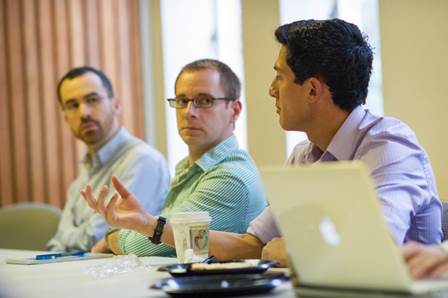
Most undergraduates can discuss sociological work, but I ... lived it for three years. Anyone interested in a sociology Ph.D. should try and have an experience that is similar to mine.
— JACOB HERNANDEZ (RIGHT)
Rice University '15
RPLC undergraduate student fellow, 2013-2015
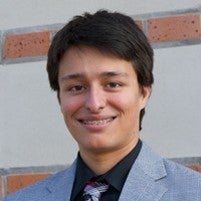
Working with RPLC brought me into direct contact with numerous perspectives on faith, religion, and spirituality. ... While the public sphere tends to polarize religious groups, I feel confident in my ability to bridge divisions and seek compromise between opposing world views.
— DANIEL CORTEZ
Rice University '15
RPLC undergraduate student fellow, 2013-2015
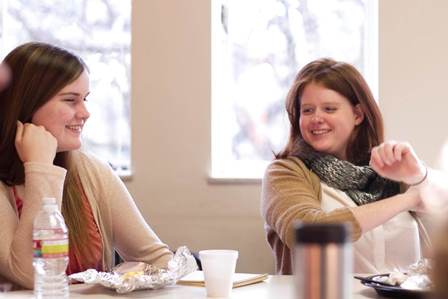
Dr. Ecklund would occasionally nonchalantly say to me and other students, ‘When you write your first book ... .’ This kind of consistent belief in and naming of her students’ abilities — even abilities that they might not yet perceive in themselves — made RPLC not only a fantastic place to try new tasks and develop high-level research skills, but also made it possible for me to imagine myself as a scholar and [gave me] the practical know-how to take real steps in that direction.
— VIRGINIA WHITE (RIGHT)
Rice University '13
RPLC undergraduate student fellow, 2010-2013; RPLC post-baccalaureate fellow, 2013-2014
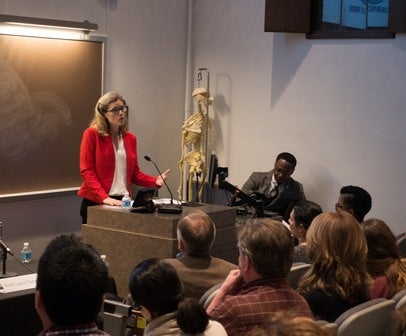
From what I can tell, the RPLC is one of a very select number of programs across the U.S. dedicated to the goal of merging rigorous academic research with public outreach. The program’s emphasis on including religious leaders in academic discussions seems especially unique.
— PAMELA PRICKETT
Assistant professor of sociology, University of Amsterdam
RPLC postdoctoral fellow, 2015-2017
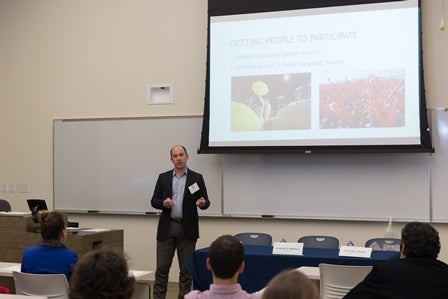
I have learned that the public, here in the Houston community and beyond, is fascinated with religion. And more specifically, people of all faith traditions crave data-driven research on religion in the public sphere because there is a real need for informed dialogue about the role of religion in different societal arenas, whether it is science, politics, or education.
— DAVID R. JOHNSON
Associate professor of higher education, Georgia State University
RPLC postdoctoral fellow, 2012-2016
